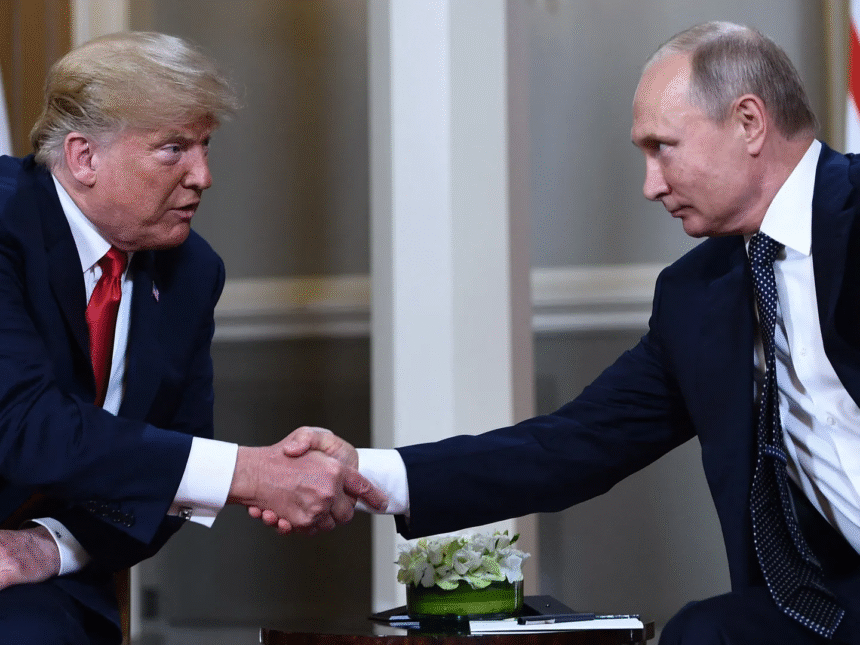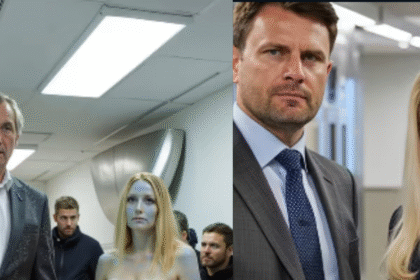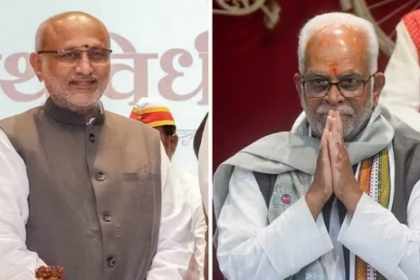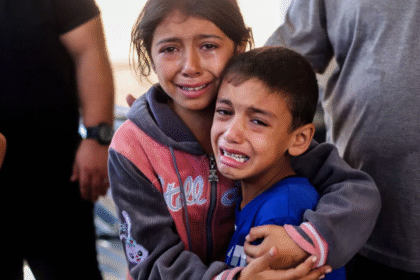Donald Trump Slams Putin Over Ukraine Ceasefire Talks: “I’m Not Done With Him” | 5 Key Takeaways from His Fiery Statement 🇺🇸
Donald Trump said he believed a deal to end the Ukraine war was possible with Russia on four separate occasions
US President Donald Trump has said that he is disappointed but not done with Vladimir Putin, days after he announced a tougher stance against Russia for its three-year-old war in Ukraine.
“I’m disappointed in him, but I’m not done with him. But I’m disappointed in him,” Trump told the BBC in an interview.
Trump said he believed a deal to end the Ukraine war was possible with Russia on four separate occasions.
“We’ll have a great conversation. I’ll say: ‘That’s good, I’ll think we’re close to getting it done,’ and then he’ll (Putin) knock down a building in Kyiv,” the US president said.
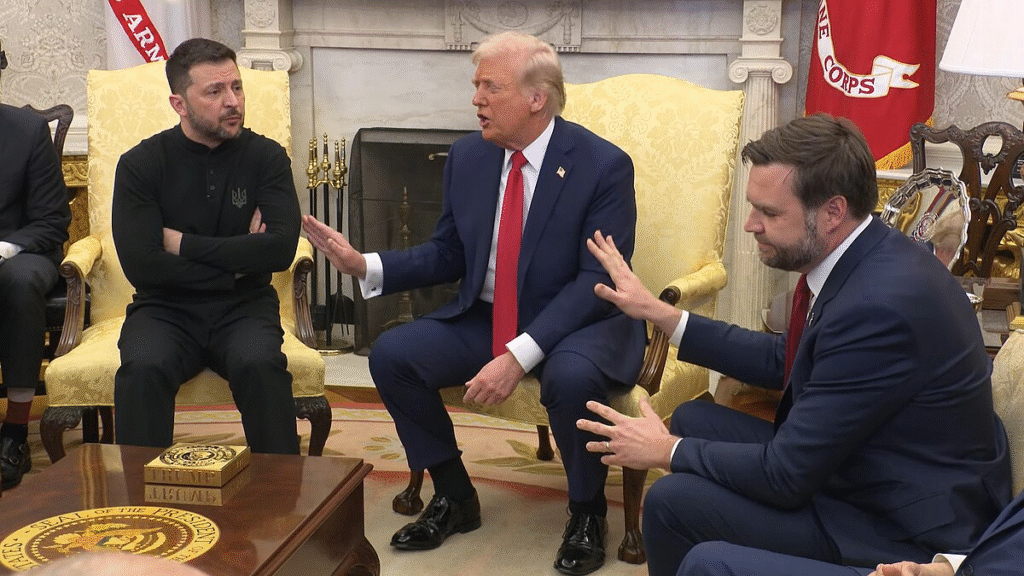
Since taking office, Trump has been pursuing a ceasefire agreement between Ukraine and Russia. However, as no ceasefire appears imminent and both nations escalate their attacks daily, the US president is reportedly becoming more frustrated with Putin.
On Monday, expressing his frustration with Putin’s refusal to agree a ceasefire, Trump had announced a wave of weapons supplies to Ukraine, including Patriot surface-to-air missile systems. The US President also threatened further sanctions on Russia unless a peace deal was reached within 50 days.
Unfazed by Donald Trump’s threats of tougher sanctions, Russian President Vladimir Putin intends to keep fighting in Ukraine until the West engages on his terms for peace, three sources close to the Kremlin told Reuters.
The sources said that Putin will not halt the war due to Western pressure and believes Russia can withstand additional economic difficulties, such as potential US tariffs aimed at Russian oil buyers.
“Putin thinks no one has seriously engaged with him on the details of peace in Ukraine – including the Americans – so he will continue until he gets what he wants,” one of the sources told Reuters on condition of anonymity.
“Putin values the relationship with Trump and had good discussions with Witkoff, but the interests of Russia come above all else,” the person added.
In a bold and unmistakably assertive tone, former U.S. President Donald J. Trump has made headlines again by expressing public disappointment with Russian President Vladimir Putin over the ongoing Ukraine ceasefire situation. Trump, who has long boasted of his unique ability to “handle” world leaders, declared, “I’m not done with him yet,” in reference to Putin, signaling a sharp pivot from his earlier restrained posture on Russia’s invasion of Ukraine.
This strong rhetoric comes just as the 2024 U.S. presidential race gains momentum, and as Trump positions himself once again as a leading Republican candidate. His comments have ignited speculation about how a potential second Trump administration would reshape America’s foreign policy, especially in conflict zones like Ukraine, Eastern Europe, and beyond.
Speaking in a recent media interview during a rally-style event in Ohio, Trump directly addressed the ceasefire efforts in Ukraine. While the Biden administration has continuously pledged military and humanitarian support to Ukraine, Trump took a different angle, criticizing not only President Joe Biden but also Vladimir Putin himself.
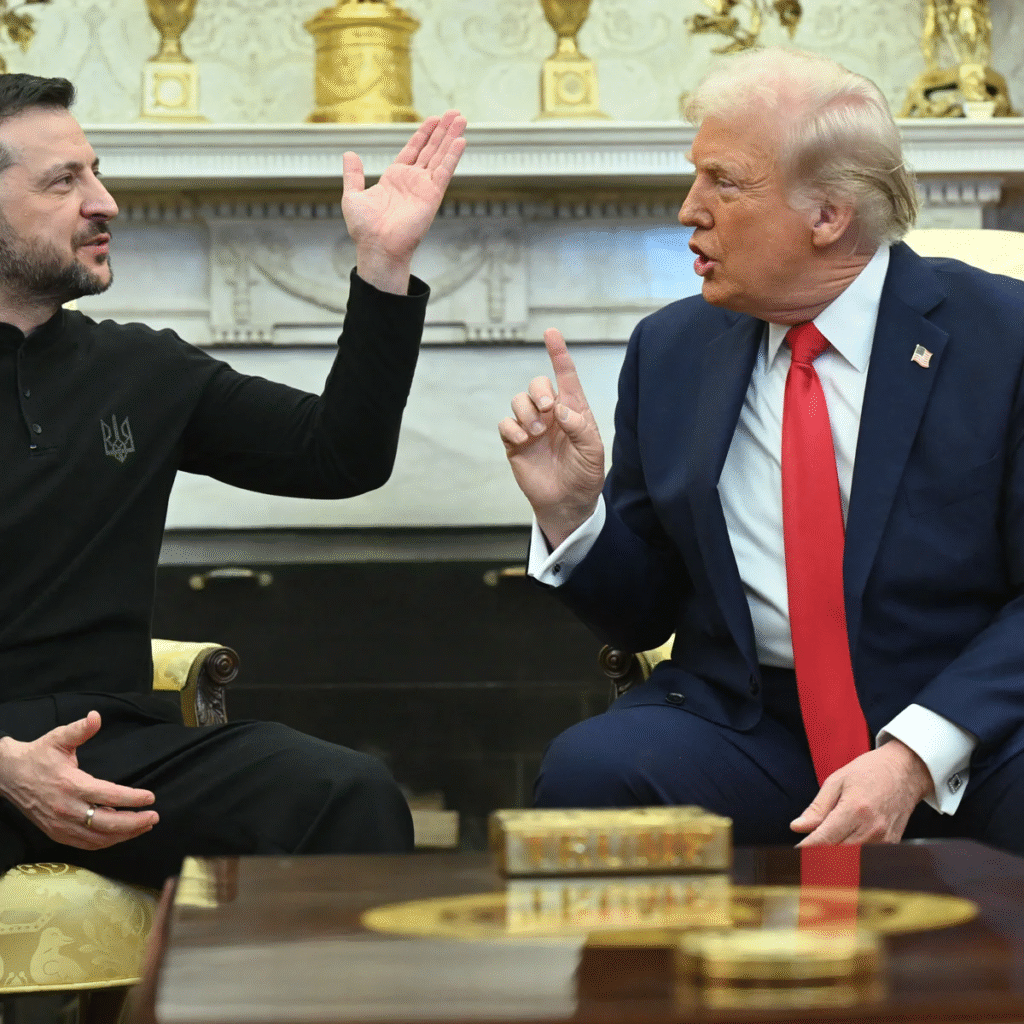
“Putin hasn’t done what I expected. I thought he’d negotiate by now. He’s dragging it out. I’m disappointed—and I’m not done with him yet,” Trump said.
This marks one of Trump’s strongest public criticisms of Putin since the war began in February 2022, and a rare admission of disappointment with a leader he once described as “smart” and “strategic.”
Unlike his previous public statements where he often avoided directly criticizing Putin, Trump’s latest comments show a clear shift in tone. The use of the word “disappointed” and the phrase “not done with him” signals a willingness to apply more aggressive diplomatic pressure in the future.
Trump’s words can be interpreted as a preview of his potential 2025 administration’s foreign policy. He suggests that he expected Putin to agree to some sort of peace deal or negotiation by now, implying that had he been president, the war would have either not started or ended already under his influence.
Trump didn’t hold back from criticizing the Biden administration either. “We’ve sent billions, and what do we have? A stalemate. A disaster. Weak leadership leads to long wars,” he said. This underscores Trump’s long-standing criticism of U.S. aid to Ukraine and his belief in “dealmaking over warfare.”
Trump’s message also speaks to a growing sentiment within sections of the American electorate that is tired of U.S. involvement in foreign wars. By suggesting that peace could be reached faster through strength and negotiation, Trump is positioning himself as the candidate of “peace through power.”
The remark “I’m not done with him” is not just for Putin. It’s a strategic message to other global actors—China, Iran, North Korea—that Trump, if re-elected, will likely pursue a more forceful and direct diplomatic agenda than what he sees in the current White House.
While some European political observers have long feared a second Trump presidency due to his nationalist, “America First” stance, others welcome the possibility that his unorthodox diplomatic style could yield real negotiations between Russia and Ukraine. Still, uncertainty surrounds whether Trump would push for peace or disengagement.
Ukrainian officials have not yet formally responded to Trump’s comments, though sources close to the Zelensky administration reportedly view his return to power as a “wild card” that could either force Putin to the table—or embolden him further, depending on Trump’s follow-through.
Moscow has not issued a direct reply to Trump’s remarks. However, Kremlin analysts believe the Russian leadership will be watching the 2024 U.S. election closely, as a Trump victory could bring about a drastic shift in the geopolitical calculus of the war.
Trump’s relationship with Vladimir Putin has been a source of intense scrutiny and controversy throughout his political career. From the Mueller investigation into 2016 election interference to his infamous Helsinki press conference in 2018 where he appeared to side with Putin over U.S. intelligence agencies, Trump’s handling of Russia has always drawn sharp criticism.
However, Trump maintains that no wars broke out during his term, and he often claims that Putin would not have dared to invade Ukraine if he had remained in office. “It wouldn’t have happened. I had leverage. He knew that,” Trump declared at a recent campaign stop.
As Trump solidifies his lead in Republican primaries, foreign policy—especially regarding Ukraine, China, and Iran—is likely to become a central campaign issue. While Biden continues to champion democracy and support Ukraine, Trump may contrast that by proposing cost-saving diplomacy, prioritizing U.S. interests and borders.
A new Trump doctrine could focus on:
- Ending foreign wars through deal-making
- Reducing U.S. military aid abroad
- Reasserting economic and diplomatic pressure
This resonates with his base, particularly among conservative voters in battleground states who believe America should “stop being the world’s policeman.”
Democrats have swiftly condemned Trump’s latest remarks, warning that his admiration for strongmen leaders like Putin poses a threat to global security. Senator Bernie Sanders said, “Trump talks tough, but history shows he bends to dictators. That’s not leadership—it’s danger.”
Foreign policy scholars also warn that diplomatic posturing without a solid strategy could embolden adversaries rather than deter them. Others argue Trump’s unpredictability could destabilize NATO unity and undermine long-term peace negotiations.


